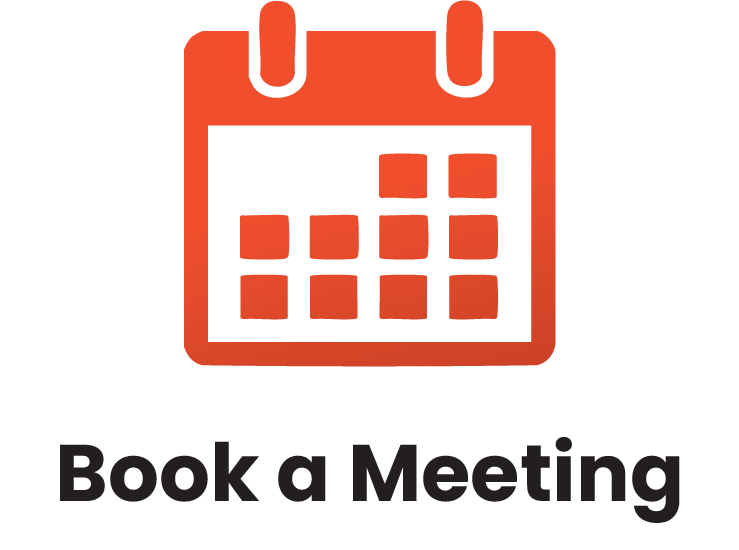Interactive training sessions led by experienced facilitators.
What is In-Person, Instructor-Led Training?
Our in-person training is delivered by a live facilitator who works directly with your team at your location. It’s our most popular format because it allows for real-time interaction, hands-on learning, and direct support.
Every session is tailored to your team’s specific goals, industry, and challenges—no generic, one-size-fits-all programs. Whether it’s a single session or a full training series, we design the experience to be relevant, practical, and fully aligned with your needs.
What is Live Webinar Training?
Live webinars are facilitator-led training sessions delivered online in real time. They’re ideal for teams working in different locations or with busy schedules.
This format offers shorter, more frequent sessions that are easy to coordinate—making it a convenient option for organizations with remote or distributed teams.
What is Virtual Classroom Training?
Virtual Classroom training is live, instructor-led training delivered online. It offers the same interactive experience as in-person sessions, with real-time discussions, group activities, and instructor feedback.
It’s a flexible option for organizations that want to reduce travel, save costs, or better fit training into busy schedules.
What is a Lunch & Learn Session?
Lunch & Learn sessions are short, facilitator-led training sessions delivered in person or online—typically during the lunch hour. They focus on specific topics or skills and offer a quick, engaging way to learn without a full-day commitment.
These sessions can be offered as one-time events or as part of a series, making them a great option for ongoing, bite-sized learning.
Online Learning
Enjoy our self-paced option and learn from anywhere!
$279.00 USD
Facilitation Skills
It is impossible to be part of an organization today and not attend meetings. Staff meetings, project meetings, and planning and coordinating meetings all take time.
There has been a growing realization that we have to pay attention to the process elements of meetings if we want them to be effective. With its focus on asking rather than telling, and listening to build consensus, facilitation is the new leadership ideal, the core competency everybody needs. Managers and supervisors are often asked to facilitate rather than instruct or manage their meetings and training sessions.
How can you facilitate, rather than control, group decision-making and team interaction? With no formal training, people may find it difficult to make the transition from instructors or managers to facilitators.
LEARNING OBJECTIVES
At the end of this workshop, participants will be able to:
- Distinguish facilitation from instruction and training
- Identify the competencies linked to effective small group facilitation
- Understand the difference between content and process
- Identify the stages of team development and ways to help teams through each stage
- Use common process tools to make meetings easier and more productive


COURSE OUTLINE
Defining Your Role
To begin, participants will explore the differences between facilitation, training, and chairing.
How Facilitators Work
Next, participants will explore key facilitation skills, levels of facilitation, facilitation language, and things to do to ensure facilitation success.
Establishing Ground Rules
In this session, participants will discuss ground rules, also known as norms. They will also work together to generate a list of ground rules for the remainder of the workshop.
Content and Process
While facilitators are responsible for the process, it is participants who are responsible for and manage the content. This session will explore the differences between these two aspects of a meeting.
Types of Thinking
Next, participants will learn about divergent thinking and convergent thinking, as well as the grey area (also known as the Groan Zone) between the two.
Handling Controversial Issues
In this session, participants will learn how to handle controversial issues in a neutral and professional way.
Communication Skills
This session will explore the building blocks of good communication: active listening, questioning skills, probing techniques, and managing your body language.
Listening For Common Ground
For most people, it seems to be instinctive to try to find something in common with their fellow humans. In this session, we will explore the importance of listening for common ground in facilitation.
Common Facilitation Techniques
This session will begin with a lecture on 16 important facilitation techniques. Then, participants will divide into groups to prepare and present a short demonstration on a chosen technique.
Providing Effective Feedback
Part of your role as a facilitator includes providing and accepting feedback. This session will give participants some tips on giving and receiving feedback. It will conclude with an exercise that will help them practice this skill.
Managing Divergent Perspectives
Next, participants will learn some ways to manage divergent perspectives. Then, they will apply their knowledge to a case study.
The Language of Facilitation
In this session, participants will learn about some communication elements that are unique to facilitation. Then, they will apply their knowledge to an interactive case study.
Building Agendas
Part of facilitating meetings is developing an agenda. This session will outline a brief, easy process to help facilitators build a good agenda.
Dealing with Difficult Dynamics
In this session, participants will complete a mix and match exercise to identify possible difficult behaviors and ways to manage them. Then, participants will learn about and practice twelve easy, effective ways to intervene in a group discussion.
Building Sustainable Agreements
Getting a group to come to an agreement is not much good if that agreement is not supported by true consensus. This session will give participants ways to build sustainable agreements.
Stages of Team Development
Next, participants will learn about Tuckman and Jensen’s Forming, Storming, Norming, Performing, and Adjourning model, which outlines the stages of team development. Participants will also identify some ways to help groups through each stage.
Analysis Tools
The final session will introduce participants to two decision-making tools: SWOT analysis and force field analysis.


















